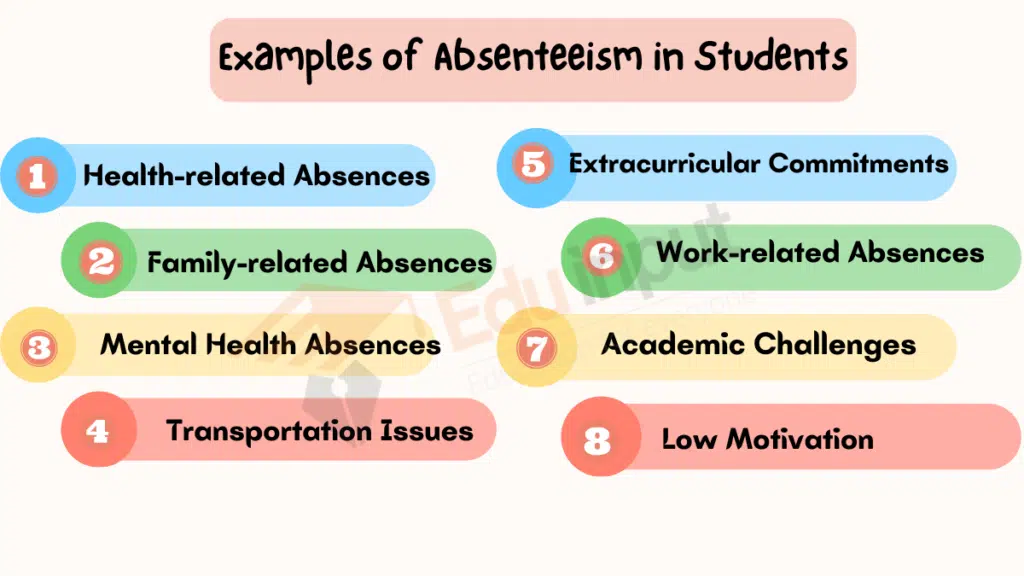7 Examples of Absenteeism in Students
Absenteeism, or frequently missing classes, is a major issue for many students and schools.
Excessive absences in students can negatively impact a student’s academic performance and overall educational experience.
In this blog post, we will explore some of the main examples of absenteeism in students and discuss potential solutions.
Understanding these reasons can help educators, parents, and students work together to address and minimize these disruptions to learning.

Examples of Absenteeism in Students
1: Health-related Absences
Illness
Falling sick is one of the most common reasons for students missing school. This includes everything from the flu and colds to more serious health conditions.
Medical Appointments
Students may need to miss school for routine check-ups, dental appointments, or specialized medical treatments.
2: Family-related Absences
Family Emergencies
Unforeseen family emergencies, such as accidents or sudden illnesses of family members, can require a student’s presence at home.
Funerals and Memorials
Sadly, students may miss school to attend funerals or memorials of loved ones.
3: Mental Health Absences
Anxiety and Depression
Mental health issues can affect students’ ability to attend school regularly. Sometimes, they may need time off to cope with their mental well-being.
Bullying
Persistent bullying can lead to students avoiding school to escape from these distressing situations.
4: Transportation Issues
Lack of Transportation
Some students may struggle to get to school due to a lack of reliable transportation, which can lead to chronic absenteeism.
Bad Weather
Extreme weather conditions can disrupt transportation systems, making it difficult for students to reach school safely.
5: Extracurricular Commitments
Sports and Activities
Student athletes and participants in extracurricular activities may occasionally miss school for practices, competitions, or events.
Cultural or Religious Observances
Some students may need to miss school to observe cultural or religious holidays.
6: Work-related Absences
Part-time Jobs
Older students often work part-time jobs to support themselves or their families. Balancing work and school can lead to occasional absences.
7: Academic Challenges
Lack of Interest
When students find a subject uninteresting or too challenging, they may skip class.
Low Motivation
A lack of motivation can also contribute to absenteeism, as students may not see the value in attending school.
Understanding the various reasons for student absenteeism is crucial for all stakeholders in a student’s education.
By identifying the underlying causes, educators, parents, and students can work together to find solutions and support mechanisms to ensure regular attendance.
It’s important to remember that addressing absenteeism is not about blame but about creating a conducive learning environment where students feel motivated and encouraged to attend school regularly.



Leave a Reply